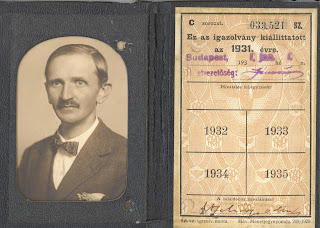 Interview with Iván Szelényi, William Graham Sumner Emeritus Professor of Sociology at Yale University and Foundation Dean of Social Sciences at NYU Abu Dhabi. He has also taught at UCLA, the CUNY Graduate Center, and the University of Wisconsin, Madison. The interview was conducted in two parts in Budapest, Hungary, on January 21, 2017. To access the audio of the complete interview (in two parts), click here for Part 1 and here for Part 2.
Interview with Iván Szelényi, William Graham Sumner Emeritus Professor of Sociology at Yale University and Foundation Dean of Social Sciences at NYU Abu Dhabi. He has also taught at UCLA, the CUNY Graduate Center, and the University of Wisconsin, Madison. The interview was conducted in two parts in Budapest, Hungary, on January 21, 2017. To access the audio of the complete interview (in two parts), click here for Part 1 and here for Part 2.
Szelényi is the author of many books and the recipient of as many prizes and distinctions. Among his most prominent publications is The Intellectuals on the Road to Class Power, which he co-authored with György Konrád (and which first appeared in 1979); Making Capitalism without Capitalists (With Gil Eyal and Eleanor Townsley), published by Verso in 1998 and translated into several languages; Privatizing the land: Rural Political Economy in Post-Communist Societies, also from 1998; Theories of the New Class – Intellectuals and Power (with Larry King) from 2004, and Poverty and Social Structure in Transitional Societies: The First Decade of Post-Communism (from 2013).
Special thanks to Máté Rigó (Ph.D. Cornell, 2016) for preparing an inventory of the interview.
Interview Themes
00:00 Family background: bourgeois family from Késmark
02:00 Family politics: Horthy, Trianon as a source of political radicalism, Nyilas party
 |
| Szelényi's paternal great-great grandparents Karl József Kamitska (1804-1864) and Anna Schwarz (1813-1900) |
09:00 Trianon, exposure to nationalist discourses
11:00 1948: Six-month trip to the Netherlands as a ten-year old through the Calvinist church
12:00 Dutch trip and stay in a Dutch family’s home; trip formative for the formation of Szelényi’s political views
14:00 Dutch host family; Hungarian fixation on noble background vs. Dutch attitudes
17:00 Identification as a “transnational,” American, and Hungarian
 |
| Szelényi’s grandfather, Ödön (Victor) Szelényi (1877-1931), distinguished scholar of education, philosophy, literature and theology |
23:00 The siege, interaction with soldiers
24:00 Impact of literature teacher in formation of left and liberal, humanitarian ideas
26:00 Influential books, classmates, friends, Ferenc Litván, György Litván, József Litván, Károly Szendi
30:00 Diversity of friends’ backgrounds
31:00 1950s: left-liberal views solidified, non-communist, ”lefty”
34:30 Endorsement of Bernie Sanders
36:00 Humanism as political conviction; Political views did not change
 |
| Szelényi's father, Gusztáv Szelényi (1904-1982) |
47:00 The artist Lili Országh
50:00 Training as an urban sociologist, András Hegedűs
52:00 Ford fellowship at Columbia University and Berkeley, 1964-1965
54:00 George Konrád
56:00 Empirical research on newly built housing estates with Konrád
58:00 Overrepresentation of cadres in new socialist block apartments
00:00 Sociology
02:00 Choice of sociology as a career, University of Economics, János Avar, studies as an undergraduate
03:00 Refused to join Communist Youth League initially
04:00 Central Statistical Office
06:00 Choice of sociology as a profession
08:00 Research on leisure time
11:00 Ford Foundation interview
13:00 Research on housing with Konrád
14:00 1956 revolution, followed events without engagement
16:00 Politics without passions
19:00 2016 US elections
21:00 1956, Went on a date instead of participating in revolutionary march
24:00 Fear of the rise of anti-Semitism and the return of the Horthy regime
28:00 1956 revolution a mixed bag ideologically, thinks of emigrating to Vienna
34:00 The terrorist mindset, Islamist terrorists, suicide bombers
35:00 Emigration to Vienna
36:00 Intellectuals on the Road to Class Power, István Bibó as a colleague at Statistical Office
37:00 Foreign journals department at the Statistical Office
38:00 Idea for Intellectuals on the Road to Class Power comes from István Bibó
40:00 György Konrad, The City Builder; the privileges of intellectuals in the socialist regime
43:00 The transformation of villages under socialism; “under-urbanization,” one million commuters in 1970s Hungary
46:00 The transformation of gender relations in rural Hungary
48:00 Urban planners and under-investment in villages; Szelényi and Kondrád’s article “dictatorship of the club of planners,” Pál Granasztói
53:00 Evaluations of socialism by intellectuals in Hungary in 1960s, 1970s
54:00 István Bibó, “dictatorship of the intellectuals,” Milovan Djilas, changes after Stalin’s death; science as tool to give legitimacy to state bureaucrats
58:00 Ideology and intellectuals
1:01:00 Intellectuals vs. technicians, technocrats
1:05:00 US academia and technocracy
1:08:00 Thorstein Veblen, US, “dictatorship of engineers,” New York intellectuals, managers
 |
| From the left: Sociologists Teréz Kovács and Iván Szelényi, political scientist Bálint Magyar, and agrarian social scientist Pál Juhász (photo Fortepan). |
1:15:00 Moralism and the humanities
1:18:00 Katherine Verdery
1:21:00 The reception of Intellectuals on the Road to Class Power in the US; the writing of the book
1:23:00 Withdrawal of research funds from Konrád and Szelényi
1:28:00 Punishment after Intellectuals on the Road to Class Power appeared
